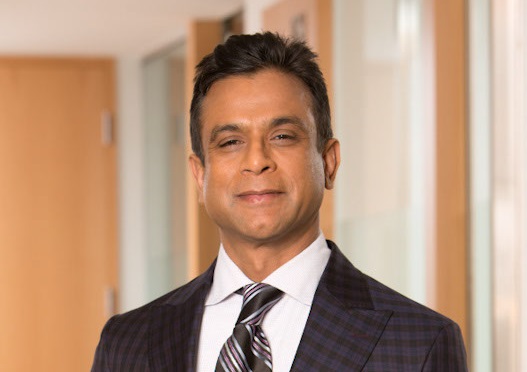Anyone who speaks to Ramesh Kashyap gets quite a surprise when they discover he’s new to the industry

It’s fair to say that anyone who speaks to Ramesh Kashyap gets quite a surprise when they discover that he’s new to the asset management business. He speaks with a passion and depth that betrays his short time in the space. A veteran of the banking industry, Kashyap was working at distressed debt buyer PRA Group when James Fox, the President of Sprott Asset Management, asked if he had any interest in joining the firm. Kashyap’s first thought was: “What am I going to do there?”
Fox outlined what he hoped to achieve with Sprott’s private debt funds and Kashyap’s interest was definitely piqued, but he decided to only accept the offer if made responsible for overseeing the funds from a risk perspective and, more importantly, be able to play a key role in expanding the offering. Coming from the banking space (Kashyap co-managed the Wachovia business for Canada, which became Wells Fargo), Kashyap was aware of the vast size of the private markets and the fact that the banks were tightening in terms of what they could offer.
“With the banks deleveraging their balance sheets and slowly exiting the space, I knew there were so many opportunities in the space,” Kashyap says. “There was a huge opportunity to expand the private markets space and nobody else was doing it; that’s why I signed up with Sprott.”
As well as being responsible for risk oversight and expanding the class, the space and the AUM, investor education is also an important aspect of Kashyap’s role (he’s currently Senior Vice President, Alternative Income). He finds a distinct lack of private debt understanding amongst a large portion of the investor community. “I talk to brokers and bankers and tell them that private debt should not be considered as highly speculative or risky; that the risk is lower here compared to many other instruments,” he says. “Yields are higher because of the lack of liquidity. It’s not the same as a publically listed company where you can dump your investment and get your money back.”
As with so many in the banking and investment industries, the financial crisis dictated that Kashyap’s career hasn’t been all smooth sailing. When he was actively hired by Wachovia from GE Capital, Kashyap was given the mandate to actively pursue growth. The firm was managing around $2 billion at the time and Kashyap was given a budget to hire three or four VPs on the premise of pursuing the growth playbook.
But things didn’t play out that way: a mere three months later Kashyap was asked to go for a meeting at Wachovia headquarters. Instead of growing the book, Kashyap was then told to sell the Canadian business. There had been a run at the bank after an acquisition turned sour and the stock was plunging: pre-financial crisis Wachovia was trading in the $36 – 40 range, it was sold to Wells Fargo for $7 a share. “I put the Canadian business on sale and Scotia made a solid bid to buy the entire business – the people, process and the book,” Kashyap says. “They were ready to sign and then Wells Fargo swooped in; they wanted to make their first international foray. Scotia we very mad, they had spent a lot of money on due diligence.”
It took a while for Wells Fargo to obtain their Canadian license and as a result the firm could only participate in transactions and not lead them, which created a huge bottleneck and forced Kashyap to let a lot of people go. 2008- 2010 was tough time in the banking industry but Kashyap is now fully focused on the future; on growing Sprott’s private debt funds.
“It will be a year at Sprott in May; it’s gone pretty fast and the transition has been really exciting both in terms of what I’ve been able to do and what I can do from a potential perspective,” Kashyap says.
Related stories:
Scotiabank CEO calls on government to address trade concerns
Are you doing enough to help business owning clients?



